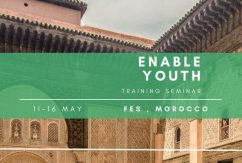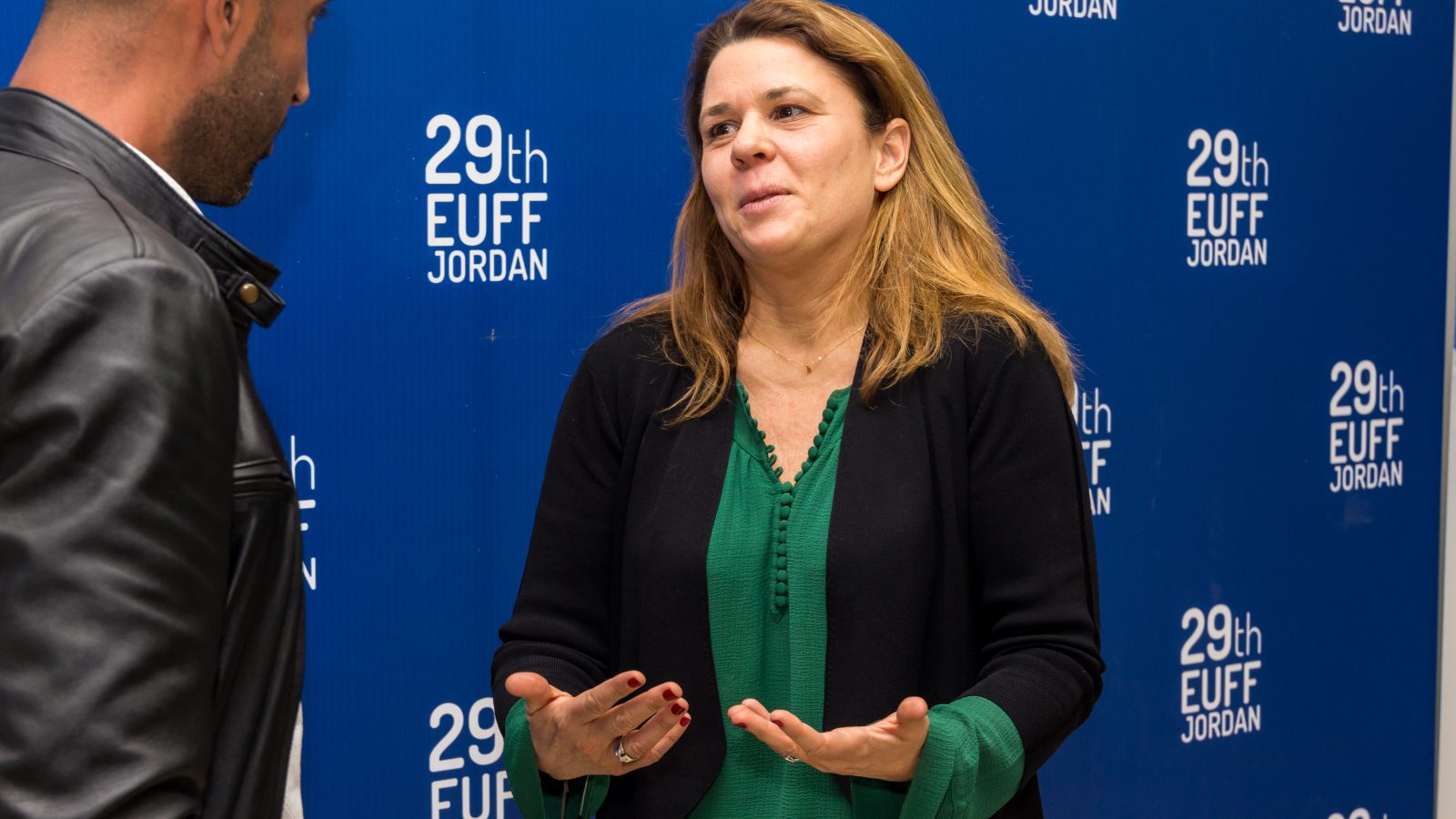European film festival: entertainment, inspiration & motivation
From a legendary Portuguese surfer who plied his trade on the Atlantic reef breaks, to the first world female champions in hip-hop, Amman EU film festival showcased odds defying achievements by sportsmen and artists in documentaries that captivated audience and critics alike. The ten day event presented a perfect opportunity for local audience to meet and speak to artists and protagonists of about 20 films from across Europe to learn, network and be inspired in an ever evolving film industry.
The European Film Festival could usher a new era in film making in Jordan. It could in fact become the catalyst to trigger development in audio film industry in the kingdom. A country that takes pride in its story telling skills, let alone the breath taking Wadi Rum landscape, Petra’s majestic ruins and desert as well as untapped resources of local talents.
Entertaining, yet inspiring, the festival that was organized by EUNIC late 2017 in Amman, is viewed as the perfect venue to provoke local filmmakers tab into local culture strength and replicate success stories in the EU, with a local flavour.
Documentaries to inspire
‘Saca: The life of Tiago Pires’ could arguably be one of the most intriguing and captivating documentaries screened in the festival. It tells an intricate story of self- styled surfer from Lisbon, nicknamed Prince of Portugal.
‘I hope my story can help young people in Jordan follow similar path to uncover their potential and find their place in history,’ said Pires on the side line of the festival, after sharing with the audience anecdotes about filming the documentary and the challenges he faced throughout his life.
‘The documentary could be done about the life of any other young man in the Middle East. This is a story for all coming generations.’
Another documentary that took audience and critics by storm is Marth & Niki. A real story about two black women from Sweden, who clawed their way up the male dominated hip hop dance to be crowned world champions, for the first time in history of the competition.
The award winning film follows Niki and Martha Nabwire on their journey to become legendary figures in their line of dancing.
The deeply moving story, with its exciting moments, reveals the hard line for success as they conquered the world of hip hop.
Niki Tsappos, Swedish dancer and artist, whose success story will live in the memory for decades called on young Jordanian artists to believe in themselves to achieve their goals.
‘Nothing was presented to me in golden plate, I had to sweat blood for recognition,’ said Niki.
‘My story in the film is dedicated for all women who suffer from all types of discrimination and stigma. I am certain Jordan has so many heroes and heroines who are interesting to the world. They only need to tell their story from behind the lenses.’
Pioneer film industry
The EU film festival, in its 29th edition, represents an opportunity for exposure of top talents from the EU to the local film industry.
‘The emphasis on documentary is meant to inspire Jordanian film makers and parties interested in audio visual industry follow similar path and make their own stories of success,’ said EU delegation chief in Amman Andrea Matteo Fontana.
‘Jordanians have the talent and institutions to support its growth to become a leading player in audio film industry,’ he added.
By inviting artists and film experts to speak, they were able to share their experience and tell stories about success and difficulties, proved engaging and helped create new horizons for future improvement in this industry at the local level, according to Gaelle Sundelin, Project Manager, EUNIC, organizer body of the event.
Jordan’s audio visual industry has been having its ups and downs over the past decades. During the 1970s and 1980s local drama was popular across Arab region in the gulf and the Middle East. But stiff competition from Syrian and Egyptian industry put the industry at the brink of collapse, according to observers.
However, the past several years saw an improvement in audio film industry climate. It comes following the arrival of Hollywood-based film makers to the country to film blockbuster movies and success of some low budget films that depicted the unique aspects about Jordan, its paradoxes and canny story telling.
Besides hosting major production companies to shoot scenes across Jordan, the small country has much more to offer than a simple backdrop for famous actors.
A combination of political stability, presence of an increasingly skilled workforce, infrastructure and support from the Royal family are good ingredients for recipe of creating strong industry capable of providing jobs and fighting unemployment.
Officials from the Royal Film Commission (RFC) have great hopes for growth of film industry thanks to growing number of professionals and rising interest in the kingdom’s landscape. An existing partnership with the University of Southern California’s School of Cinematic Arts as well as presence of the Red Sea Institute of Cinematic Arts in the port city of Aqaba, could also contribute to stimulating growth.
For instance, the multi-award winning film Deeb, stands as testimony to the great potential of film audio visual industry in Jordan. The movie went on to win a list of accolades from around the world, screened in Cane film and shortlisted for the Oscars.
‘Our aim is to have a Jordanian audio-visual industry that can compete internationally,’ said Nada Doumani, Communication & Cultural Programming Manager at RFC.
Jordan has a modern infrastructure, skilled crew available, easy filming procedures, no red tape, important support from the Government and the armed forces. In addition, there are now attractive financial incentives – tax waiving and cash rebate.
French producer Stéphanie Schorter took part in public session, where she exchanged her view on producing films based on real stories, encouraging local film makers to follow their intuitions and take risks. Her film Relève: Histoire d’une creation, or better known as ‘Reset’ told a real story about French chorographer Benjamin Millepied. The film was nominated for Most Popular Documentary at Melbourne International Film Festival.
‘Jordan can indeed benefit from being close to European film makers, but producers must take risks, without that, they will not be able to move forward.’



































